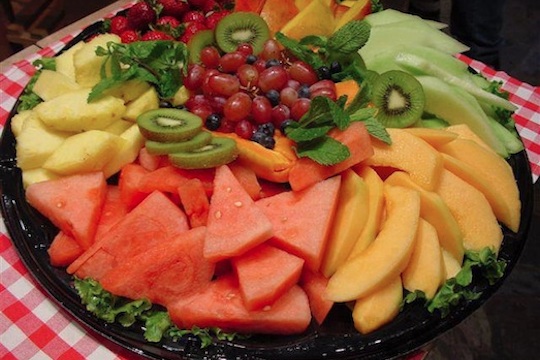Second-generation Iranians in Israel finally allowing themselves to celebrate their unique identity. Do not disturb.
By Orly Noy (Translated from Hebrew by Ela Hadad)
In my childhood, as an immigrant from Iran, I was the ultimate “Persian,” always uttered mockingly. I am not sure I understood why pointing out my ethnic origin was supposed to embarrass me, but it sure got the job done: I was ashamed to be called Persian, I was ashamed to be Persian. When they really wanted to get under my skin, they would call me Farsi-Miduni, as a curse. “Farsi-Miduni” literally means, “you know Farsi.” Or as a question, “Do you know Farsi?”; and I did. I spoke Farsi at home. When I was sad, my parents consoled me in Farsi. At the dinner table they made me laugh in Farsi and when I misbehaved, they scolded at me in Farsi. Yes, I know Farsi.
It didn’t take me much time to shed my “Persianness.” I worked hard to shed the remnants of my accent and perfect my Hebrew, to the point that within two years I was the best student in Hebrew class. Consciously or unconsciously, I began to put my Farsi into a box, so that as much as possible, it wouldn’t leave the house: I was Persian at home, and a “human” on the street (a reference to a Jewish movement in Germany that tried to assimilate into secular culture: “Be a Jew at home and a man on the street”). I became Israeli, “transparent.” My parents cooperated with me in my assimilation project as best they could (I never dared to find out how much anguish it caused them). They refrained from playing Persian music when I had friends over and from speaking Farsi in public. Farsi went away and was locked up in the confines of my home. The language of my culture, on which I was raised, turned into a language that was intimate, familial and practically secret.
Maybe that’s why I was so excited to discover a new Facebook group, “You know you’re Persian if…“. Members of the group, whose numbers reached 6,500 in just a few days, are mostly second-generation Iranian immigrants. They share their experiences as sons and daughters in Persian families, describe the atmosphere of their family moments that “make them Persian.” By doing so, they paint a fascinating picture of the character of an Israeli subculture, a sort of underground, below the radar of the “melting pot” (An early Israeli policy designed to assimilate various cultures into one generic “Israeli” culture). Thousands of young women and men joyously sharing their discovery that their mothers all sang them the same lullabies, or that their fathers threw Challah bread around the table in the exact same way on Shabbat, or that everyone’s grandmother used the same expressions to work hard on their studies.

If someone were to ask them, “Farsi-Miduni?”, most of them would say no. No, they don’t speak Farsi. But word by word, they can piece together all of the songs, the blessings, the scolding and the jokes they heard at home – and convey what they mean. In a way, they speak Farsi well, but they need the safe environment that the group offers, not only to admit it, but also to celebrate it publicly. A place where knowing Farsi is not an object of mockery, but of pride. Suddenly, that mosaic, composed of thousands of posts – how to greet someone coming out of the shower or wearing new shoes, how much tea to drink each day and how to sweeten it, how to hint to someone that they are talking too much, what one needs to say after mentioning ‘sharp’ words like knife or needle, what’s the appropriate way to click your fingers and what drink would be waiting for you after a hot day – suddenly, that mosaic crystallizes into the deepest expressions of culture and identity.
The impressive and constant growth of the group’s members and the truly astronomical number of posts they publish, speak of an entire generation’s need for that safe environment. After years of feeling uncomfortable when our friends laughed at the sight of cucumbers in the fruit-bowls on our living room tables, we can proudly upload gorgeous pictures of those bowls and take pride in them, for they hold pieces of our identity. We need that safe place where we don’t need to hide being “Farsi-Miduni,” but rather where we can be happy and excited to share that with friends who, like us, know how to express anger, happiness, excitement, disappointment, humor, appreciation and friendship in Farsi, creating a brotherhood that only immigrants and their children can comprehend. The group doesn’t define itself as a protest group, and I think that most of the members don’t see it as such. Yet, it is hard to ignore the truly subversive dimension it gains from the essence of its role in opposing cultural whitewashing: the Iranian element of these young people’s identity is not superfluous, but rather is well-known, loved and integral, gaining its legitimacy to the chagrin of the destructive hegemony and its belligerent attempts to erase, mock and ridicule.
In one post, a member of the group asked, “If there were to be peace between Israel and Iran, would you go to visit Iran?” The question was, of course, superfluous. Within a number of minutes, hundreds of replies were posted, all more or less saying, “On the first plane.” Browsing through the statuses and replies in the group shows that in a way, they are already – or still – there.
A note to readers:
As tempting as it may be, please do not join the group if you are not Persian. It’s not about Orientalist admiration, exchanging recipes or hearing wisecracks about your Persian neighbor. We really do enjoy this safe space of ours.
Thanks.
This article was first published in Hebrew on Haokets.

